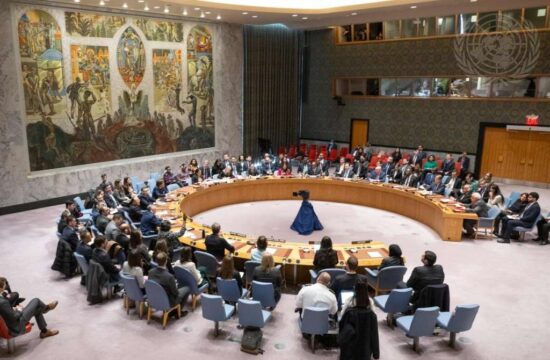
The Government of Bosnia’s Republika Srpska (RS) sent its 28th report to the United Nations Security Council in which it once again strongly criticised the role of the High Representative of the international community in the country.
Although the official who is tasked with reporting on BiH in the UN Security Council is the High Representative of the international community in the country, the RS usually also sends its own report to the UN separately.
The report, which the RS Prime Minister, Radovan Viskovic, sent to the UN Secretary General and member countries of the Security Council, covers the period May 2021 – October 2022. In it, the RS Government expresses its views on the key issues and problems facing BiH.
“In the first part, the Report deals with the results of the elections in BiH held on October 2, 2022, including the success of the current ruling coalition in the RS, which proved the support of the voters from the Republika Srpska for its vigorous defence of the Dayton Agreement. In this part, the Report also talks about the election of two politicians to the Presidency of Bosnia and Herzegovina who are working to abolish the Dayton Agreement, which is regrettable, the denial of representation to Croats in the Presidency of Bosnia and Herzegovina, and the order of the Central Election Commission to recount the results of the election for the President of Republika Srpska,” the report says.
In the second part, the RS Government stresses the importance of compliance with the Dayton Agreement, arguing that it is essential for the success of Bosnia and Herzegovina, given its tragic history. It is also noted that many successful democratic systems provide for regional autonomy and national rights.
“Republika Srpska's commitment to the Dayton Agreement is emphasized and the need for the international community and the Bosniak leadership in BiH to stop attacking the Agreement and accept it as the key to the future of BiH”, the report says.
“In the third part, it is emphasized that security in BiH is not threatened despite the irresponsible rhetoric of certain Bosniak politicians and that alarming the public about the security situation in BiH is a cynical political trick. It is also emphasized that the RS consistently excludes any resort to violence and that it has no plans for secession”, it is stated.
The fourth part of the report stresses the “harmful consequences that the actions of the Office of the High Representative (OHR) continue to have in BiH”, arguing that his “dictatorial powers” are “clearly illegal” and why the decisions of the German diplomat, Christian Schmidt, “flagrantly violate the Dayton Agreement.”
“This part also states why the fierce refusal of Bosniak parties to accept Schmidt's decision helps to expose the illegitimacy of OHR's powers. Moreover, there is growing support for the closure of the OHR and calls for the OHR to finally give up its seized dictatorial powers,” it added.
The fifth part of the report welcomes the recent decision of the European Commission to recommend EU candidate status for BiH.




